election2016
Latest
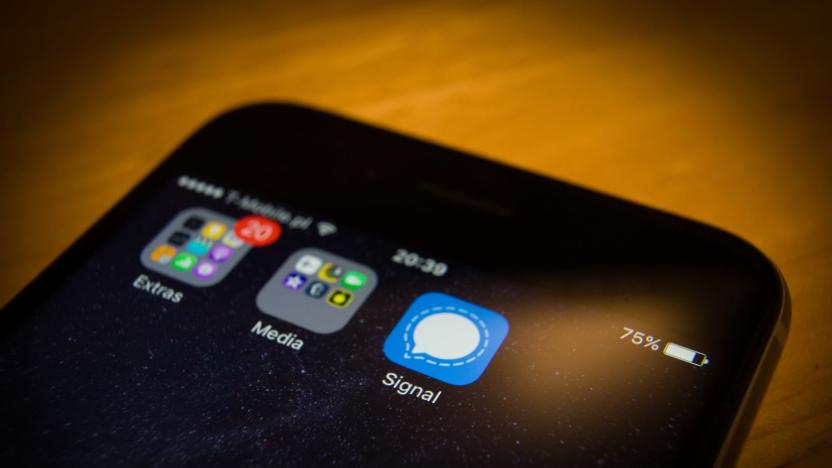
Signal makes it easier to verify the privacy of your chats
One of Signal's privacy advantages is that it not only encrypts your conversations, but gives you simple proof that those discussions are truly secret -- you just have to compare a set of digits or scan a QR code. Those safety numbers aren't always easy to use, however, and that has led to people inadvertently putting themselves at risk -- especially when they switch devices. Developer Open Whisper Systems is fixing that by altering how safety numbers work in terms of both simplicity and practicality.
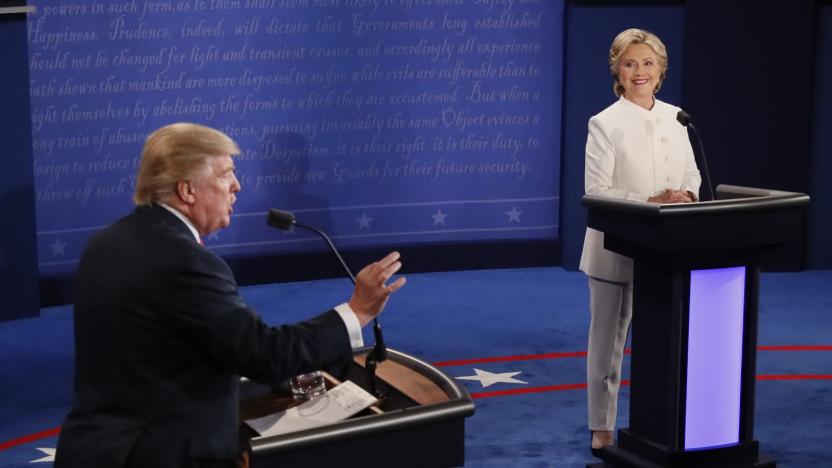
Twitter bots were rampant during the US election
If you believe one study, it's not just fake news that polluted the internet during the US election... it's bogus accounts, too. Researchers at the international Project on Computational Propaganda report that the use of politically minded Twitter bots reached an "all-time high" during the 2016 presidential campaign. Out of 18.9 million studied tweets using political hashtags, 17.9 percent of them came from "highly automated" accounts that post 50 or more tweets per day. That ratio only grew higher during the debates, peaking at over 27 percent during the final Clinton/Trump showdown -- and it conveniently tanked after the election was over.

Mark Zuckerberg explains how Facebook is fighting fake news
Ever since the end of the presidential election, the spread of rumors, misinformation and outright fake news on social media has been in the spotlight. With even President Obama speaking out about social media's role in pushing propaganda, and some coders taking matters into their own hands with browser extensions, Facebook CEO Mark Zuckerberg posted tonight about what his company is doing. According to Zuckerberg, "We do not want to be arbiters of truth ourselves, but instead rely on our community and trusted third parties."
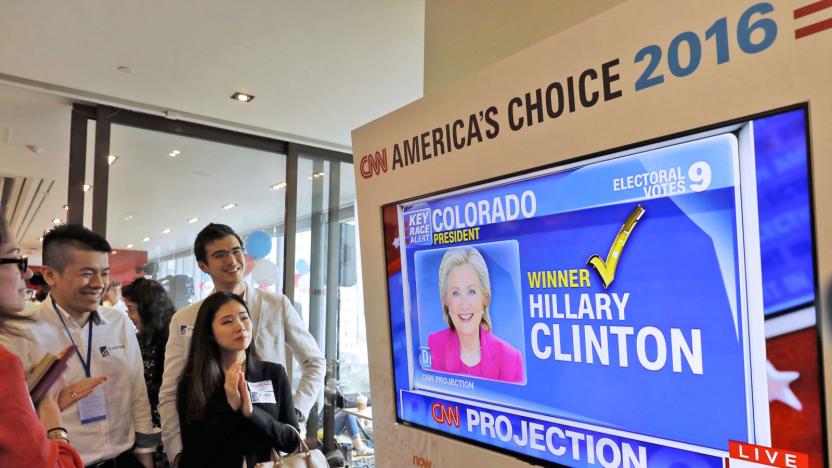
Earthquake science explains why election polls were so wrong
Polls are not predictors. This is the message that American University history professor Allan Lichtman has been screaming at the world since 1981: It's not that the polling system itself is broken -- instead, polls behave exactly as they're designed. The problem is they aren't designed to predict the outcome of elections. "Polls are snapshots," Lichtman says. "They are not predictors. They are abused and misused as predictors because they're so easy. If you're a journalist, you don't even have to get out of bed in the morning to write a story about the polls and tell where the so-called 'horse race' stands." Lichtman has accurately predicted the winner of the nine US presidential elections since 1984, relying on his 13-point Keys to the White House model. He even got it right this year, when most pundits and polls were wildly, disastrously incorrect. But Lichtman didn't just get it right; he predicted in September that Donald Trump would win the presidency, more than a month before Election Day. That was also before a swathe of potentially game-changing October surprises rocked the news cycle, including a tape of Trump bragging about sexually assaulting women and FBI director James Comey reigniting conspiracies about Hillary Clinton's use of a private server as Secretary of State.

Trump advisor takes issue with Silicon Valley's Asian CEOs
Before President-elect Donald Trump's chief strategist Stephen Bannon was headed to the White House, he was running "platform for the alt-right" website Breitbart News. Aside from overseeing the publication of anti-Semitic and misogynistic articles, Bannon also hosted the site's Sirius XM radio show. A segment from November 5th, 2015 that featured an interview with Trump has resurfaced thanks to The Washington Post. Mostly, it covers stuff like campaign financing, but at around the 16:23 mark, talk goes to H-1B visas for skilled workers to help keep them in the country after graduating from college.
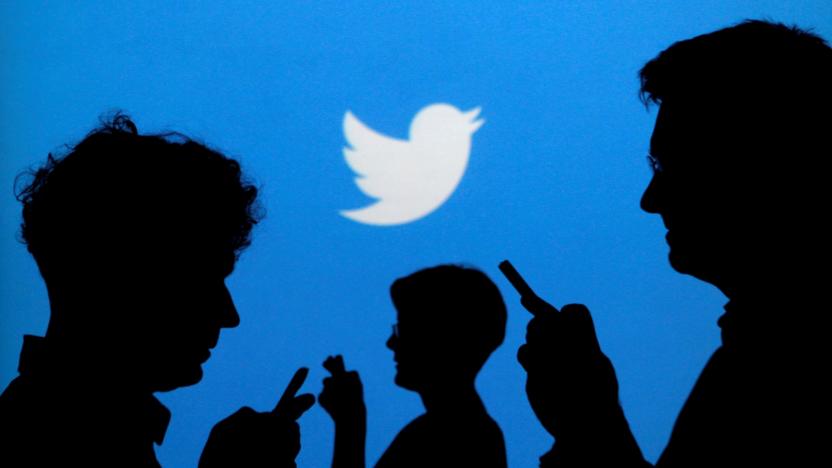
Twitter bans multiple 'alt-right' accounts
In the wake of releasing more tools to combat abuse on its service, Twitter has banned the accounts of a number of "alt-right" users. That includes the head of the National Policy Institute (NPI), Richard Spencer. The think tank describes itself as "dedicated to the heritage, identity and future of people of European descent in the United States and around the world." USA Today reports that the purge started with Spencer's verified status being revoked before removing his account (@RichardBSPencer), the NPI's (@npiamerica) and his publication The Radix Journal's (@radixjournal).
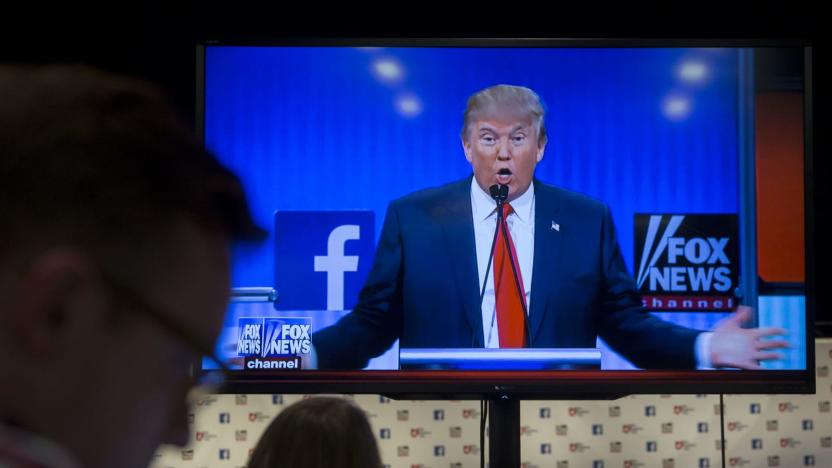
Trump's Facebook focus helped him win the election
Despite Facebook's arguments to the contrary, its social network helped Donald Trump win the US election... if not for the reasons you'd suspect. Wired has learned that the Trump campaign focused very heavily on its Facebook strategy, eclipsing a Clinton campaign that (while definitely digital-savvy) still devoted a lot of its attention to TV. Most of Trump's $250 million in fundraising came from supporters on Facebook, and it was extremely aggressive in running and refining ads. Trump's digital team ran between 40,000 to 50,000 variants of its promos per day, endlessly figuring out which strategies worked best. They knew if subtitles would help, or if a video was more effective than a still image.

Google is restricting AdSense ads on fake-news sites
Google made headlines recently about the top search result for 'final election numbers' being patently false. Now the company is going to keep fake-news sites from using its nigh-ubiquitous AdSense program according to the Wall Street Journal. In a statement, the search giant says that as part of an update to its publisher policies, that it will restrict ad serving on websites that "misrepresent, misstate or conceal information about the publisher, the publisher's content, or the primary purpose" of the site.
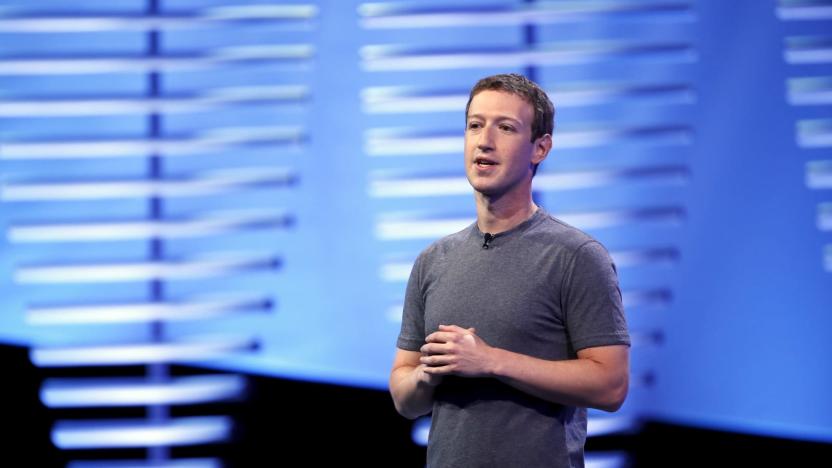
Facebook didn't stop fake news because it's afraid of conservatives
In the last week, Facebook's been battling the accusation that fake, often inflammatory stories showing up in users' Newsfeeds influenced how people voted in the presidential election. The social media giant vowed it is currently taking the issue seriously and is searching for an unspecified solution even as CEO Mark Zuckerberg personally defended Facebook, claiming that over 99% of stories on the network are authentic and that it was "extremely unlikely" that fake news impacted the election outcome. But within Facebook, a fierce debate has allegedly roiled since May about whether to install an update that curbs fake and hoax news -- but they didn't deploy it because stories from conservative news sources were disproportionately downgraded and removed from users' Newsfeeds.

Google search for 'final election numbers' offers up fake news
Search engine technology has evolved rapidly over the past few years, but it's far from perfect. One week after the US presidential election, the top Google result for "final election numbers" is a WordPress blog called 70News that's packed with inaccurate information.
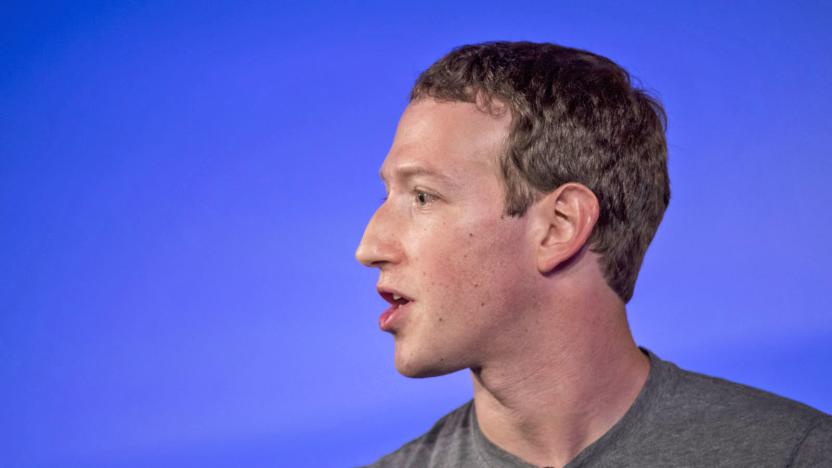
Mark Zuckerberg: over 99 percent of Facebook content is authentic
Facebook creator Mark Zuckerberg is clearly riled by allegations that his social network skewed the election by allowing fake news to propagate, and he isn't having any of it. The CEO has posted a defense of Facebook in which he argues that the low volume of bogus news made it "extremely unlikely" that it gave Trump his election win. According to Zuck, "more than 99%" of the Facebook content you see is authentic, and what fake news exists is neither limited to one side of the political spectrum nor always political. This isn't to say that Facebook is unconcerned with hoaxes, the exec says, but it has to tread "very carefully" before it purges anything.

Recommended Reading: Trump's own polling models prove accurate
Trump's Big Data Mind Explains How He Knew Trump Could Win Izzie Lapowsky, Wired While it could take some time to uncover the finer points of why the polls were so far off in the 2016 presidential election, the head of President-elect Donald Trump's data team knew the candidate had a good chance of pulling out a stunning upset. Wired talked with Cambridge Analytica's Matt Oczkowski to get some details on their internal polling models which correctly predicted how most of the states would vote.
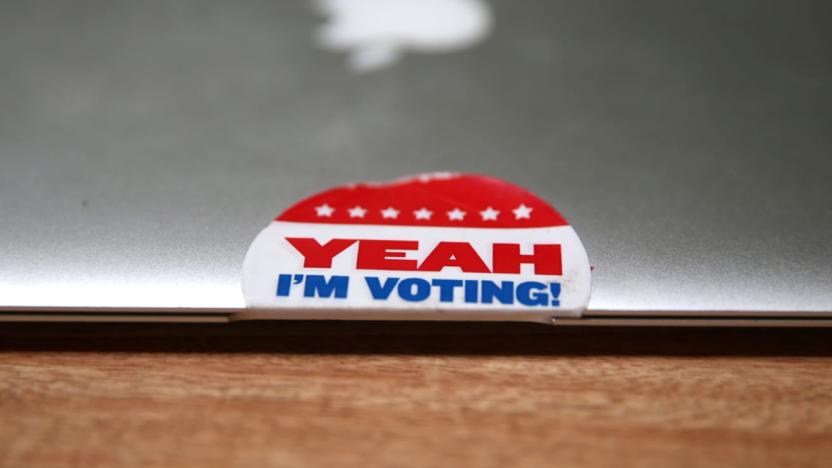
After the election, hackers target think tanks with phishing attacks
Now that the election is over, the Russian teams of hackers suspected of breaking into the Democratic Party's systems have reportedly launched a new phishing attack on US political think tanks and non-government organizations. Incident response firm Volexity has compiled information on "The Dukes" (aka APT29 or Cozy Bear) that it believes are behind the attacks. This time around, they worked by posing as a Harvard professor, sending links to Microsoft Office Word or Excel documents that contained a macro used to install a malware downloader on that target's computer. Once installed, it downloads a PNG file that has a backdoor embedded via steganography.

Trump's newly-emboldened troll army poses problems for Twitter
Yesterday, the US woke up to discover it had elected Donald Trump as leader of the free world. As we've pointed out, the decision threatens net neutrality and probably the planet, though we perversely got a Wu-Tang album from it. In addition to 48% of the country's voting electorate, those celebrating also included a loose army of trolls who rampaged across the internet harassing journalists and Clinton supporters for over a year. But far from being content with their US victory, many pro-Trump marauders have been emboldened and seem to be re-mobilizing to support far-right candidates in European elections. In short: The online abuse will almost certainly continue.
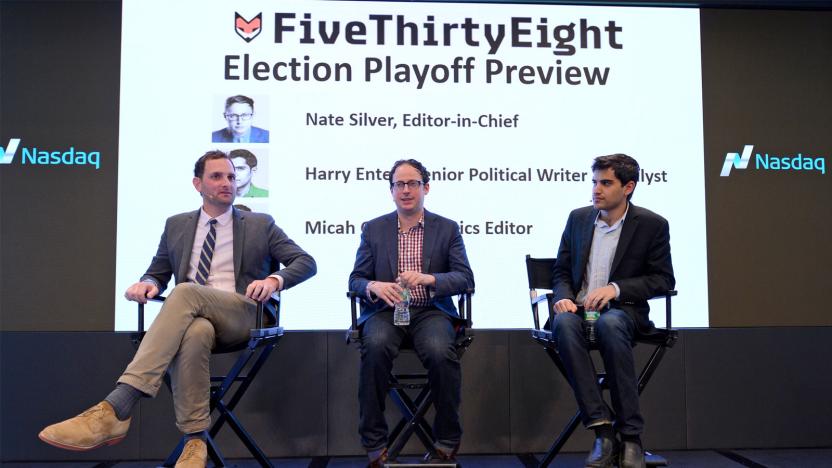
This election proved you're only as good as your data
As you've probably heard, while Hillary Clinton won the majority of the popular vote, Donald Trump was awarded more than 270 votes in the Electoral College. Many, particularly on social media, were incredulous, partly at the candidates but also at the pollsters -- in particular, famous polling analysts like Nate Silver from Disney's FiveThirtyEight blog. Silver rose to fame as the guy who successfully predicted the past few presidential elections. In 2008, he correctly predicted 49 of 50 states, and in 2012 he nailed all 50. With that, plus an impressive showing in the midterms, a legend was born. The 2016 presidential election was not so kind to FiveThirtyEight, with misses in the battlegrounds of Florida, North Carolina, Pennsylvania, Michigan and Wisconsin turning the odds quickly in favor of Trump. But throughout nearly the entire general election campaign, Mrs. Clinton was an overwhelming favorite. So the question is: What went wrong? There are explanations all over the internet this week, but there's one that should not be overlooked: Polling ...
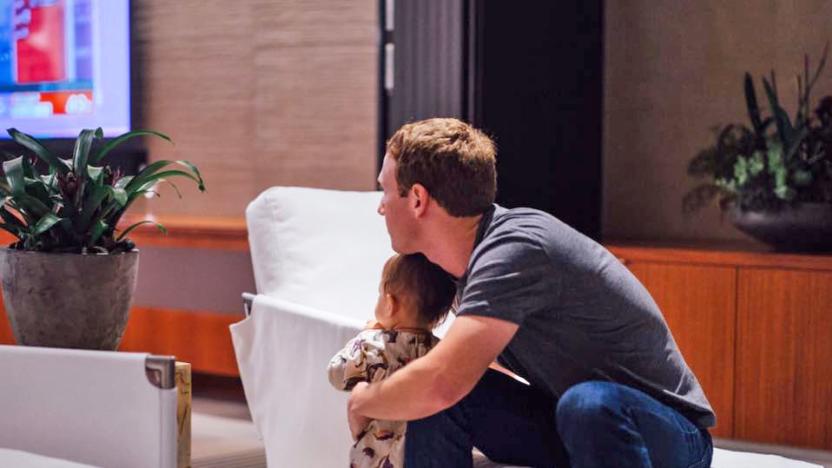
Facebook vows to fight fake news but won't say how
Facebook has a news problem. The algorithm powering its Newsfeed can't always distinguish an accurate story from a complete fabrication, which means misleading and false stories regularly circulate throughout the site. Following Donald Trump's win in the US presidential election this week, commentators are arguing that fake stories shared on Facebook's Newsfeed propelled his campaign, and executives at the site need to take responsibility for distributing accurate, vetted news.

Putin congratulates Trump with a telegram
Who said that classic telegrams were dead? Certainly not Vladimir Putin. The Russian leader congratulated Donald Trump on his presidential election victory by sending him a telegram -- yes, of the old-school variety and not the secure messaging app. The message expressed a desire to deescalate tensions between Russia and the US and find "effective responses" to international security issues.

Clinton urges supporters to speak outside secret Facebook groups
A political candidate's online support isn't always in the open, and Hillary Clinton wouldn't mind changing that. In her presidential campaign concession speech, she indirectly thanked "secret, private" Facebook support groups like Pantsuit Nation, a 3 million-strong outfit she'd messaged (through her digital team leader) on election day. At the same time, she didn't want supporters keeping their message bottled up in these groups -- she wanted them "coming out from behind that" to make sure their "voices are heard." You can see the statement below at the 15:15 mark.

You can stream songs from Wu-Tang Clan's ultra-rare album
Whatever you think of the outcome of the US election, it's providing a surprise for music fans. You see, Martin Shkreli (the infamous pharma exec who jacked up prices on an HIV/AIDS pill) bought the Wu-Tang Clan's one-copy album Once Upon a Time in Shaolin and said he'd release it if Donald Trump won the presidency. Well, he honored that promise... sort of. After word of Trump's win got out, Shkreli livestreamed both the intro to Wu-Tang's album and one of its tracks. These weren't intended as permanent copies, but this is the internet -- listeners ripped the video feed and put the tunes on other sites. They're not album-quality recordings, of course, but this might be the only chance you get at listening to this exceptionally rare composition.

Trump website flaw allowed anyone to 'hack' it
There are only a few more hours until the polls close, but that doesn't mean election fever has died just yet. A few clever folks on the internet have discovered that there's a flaw on Donald Trump's campaign website where you can just drop whatever words you like in the latter half of the URL, and, well, the page will just display it. Here are a few examples that we've seen on the internet.







